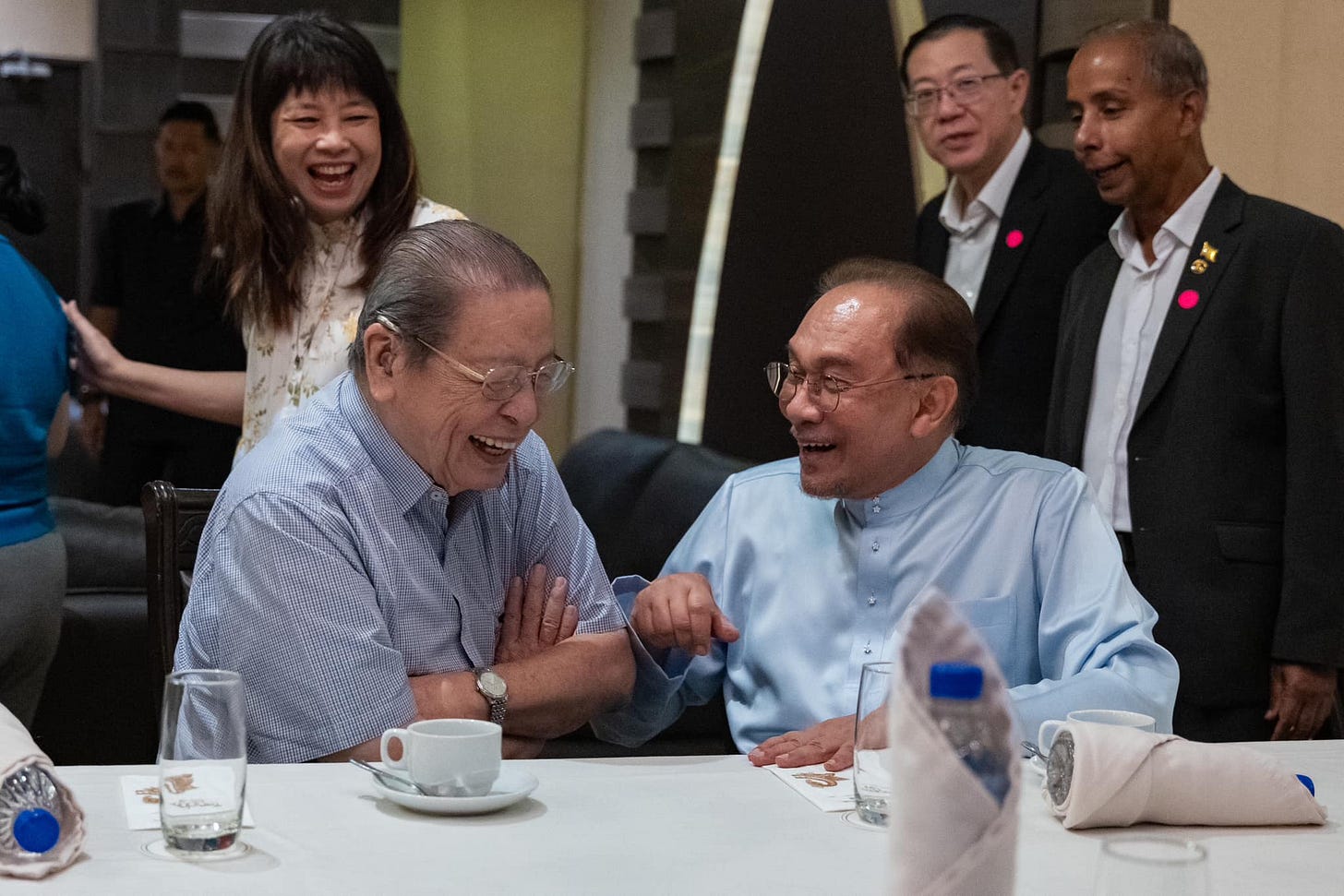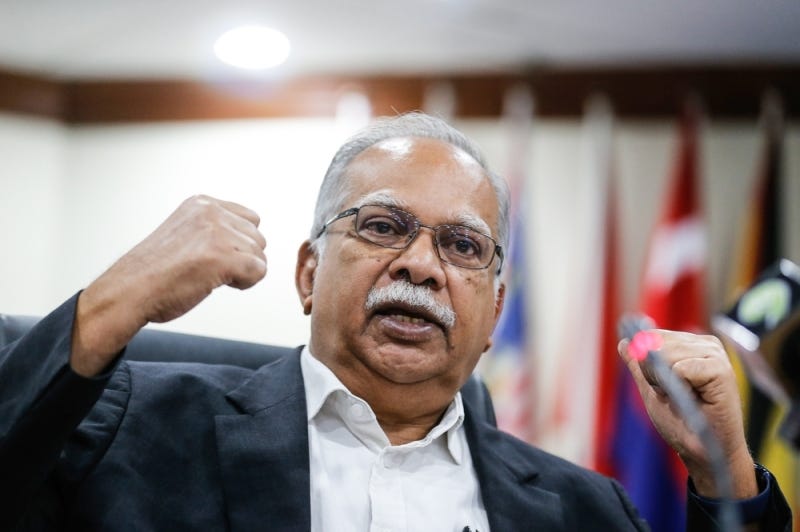Guest Editorial: The illusion of reform: PM Anwar Ibrahim, DAP, and struggle for change
Prof. Dr. Ramasamy
Anwar Ibrahim Facebook
Prime Minister Anwar Ibrahim’s recent appearance at the launch of the Mandarin version of Lim Kit Siang’s biography in Ipoh has reignited discussions about his commitment to the promised reforms.
While veteran journalist Terrence Netto lauds Anwar for maintaining the impression that reform is still on the agenda, a closer analysis reveals a different story—one of unfulfilled promises and political maneuvering.
Anwar’s speech in Ipoh, the political stronghold of the Democratic Action Party (DAP), seemed designed to reassure a predominantly Chinese audience of his commitment to reform.
However, his repeated analogy to the French Revolution—a cautionary tale about the dangers of rushing reforms—raises questions about his grasp of the current political landscape and the urgency required to address Malaysia’s systemic issues.
The analogy has become a trope, yet its inappropriateness in the Malaysian context remains glaring.
The urban-rural divide
Anwar briefly touched on the urban-rural divide but failed to elaborate on how this fundamental issue impedes meaningful reforms.
While he praised Lim Kit Siang’s legacy, his message skirted around the structural challenges and divisions plaguing Malaysian society.
The urban-rural divide is not merely a demographic statistic—it represents the deep-rooted inequities that shape political outcomes and public policy.
Without addressing this divide, any hope for genuine reform remains distant.
DAP’s declining influence
The DAP, despite its prominent position in the unity government, finds itself increasingly marginalized in influencing the reform agenda.
Even as Lim Guan Eng, the son of Kit Siang, may privately press for reforms, the party’s leadership appears unable to sway Anwar or the broader Madani government.
Any push for rapid reforms risks alienating Anwar, who holds the trump card of forging alliances with PAS if the DAP becomes too assertive.
This predicament places the DAP in a position worse than the Malaysian Chinese Association (MCA) during its emasculation under the Barisan Nasional (BN) administration.
Unlike the MCA, which never made grand promises to its electorate, the DAP raised expectations among the Chinese and Indian communities with pledges of equality, justice, and reform. Now, these promises seem increasingly hollow.
Shifting support among ethnic communities
The Indian community, once a staunch supporter of the DAP, has begun to abandon the party, recognizing its limitations as a truly multiracial organization.
The Chinese community, while still largely aligned with the DAP, might reconsider its loyalty if a credible alternative emerges.
For now, however, they remain tethered to the DAP due to a lack of viable options.
The DAP’s inability to deliver on its promises has led to growing disillusionment. While its leaders enjoy the perks of power, their supporters are left questioning whether the party can bring about meaningful change.
Anwar’s dual messaging
Anwar’s ability to tailor his messages to different audiences highlights his political acumen but also exposes a troubling inconsistency.
In Ipoh, he sought to placate the Chinese audience by emphasizing reforms, but his actions suggest that his primary concern is preserving his position as the head of the Madani government.
Reassurances are offered, but substantial changes remain elusive.
This dual messaging strategy serves to appease different factions, but it also perpetuates the status quo.
The prime minister’s reluctance to push for transformative reforms speaks volumes about his priorities and the constraints he faces.
The need for genuine reform
Malaysia’s racial and religious divisions continue to undermine the nation’s progress. Yet, these divisions are not being addressed through reform; instead, they are often manipulated to serve narrow political interests.
Anwar’s leadership, while celebrated by some, has yet to demonstrate the courage and vision needed to overcome these challenges.
As the Tamil proverb aptly puts it, Anwar is like a slippery fish—difficult to grasp and even harder to hold accountable. If two years have passed without meaningful reforms, what assurance is there that they will materialize in the future?
The DAP and other Madani coalition members must recognize that their credibility is on the line. Empty promises and symbolic gestures are no substitute for real change. The Malaysian people deserve more than platitudes—they deserve leaders who can deliver on their commitments and address the nation’s pressing issues with integrity and resolve.
Let us not allow the narrative of reform to be hijacked by those who use it as a rhetorical tool rather than a genuine agenda for progress.
Prof. Dr. P Ramasamy
Malaysian, 75 years of age. Former professor of political economy UKM. Former Senior Research Fellow, ISEAS. Former Visiting Professor, University Kassel, Germany. Deputy Chief Minister Penang, 2008-2023. Former member of parliament, 2008-2013. Three terms Perai state assemblyman. Former Chairman of Penang Hindu Endowments Board. Involved in peace talks in Aceh and Sri Lanka. International peace consultant. Chairman of political party Urimai.
Subscribe Below:





The Scicilians like thei American counterparts (from whom Anwar has learned a lot) have dinner with the people they are about to kill. The reason being that their prey then are drawn to a false sense of security, are relaxed and let their guard down. During that dinner they will try that one last chance to see if in a relaxed state feeling favoured, their prey will disclose any secrets of his betrayal. Often through a slip of tongue.
On the other hand, the Chinese like Kit Siang too have similar rituals. They bring their adversaries very close to them so that when they have to stab them in the heart, they are not too fear away and their deeds are not visible to innocent by standers as they walk away.